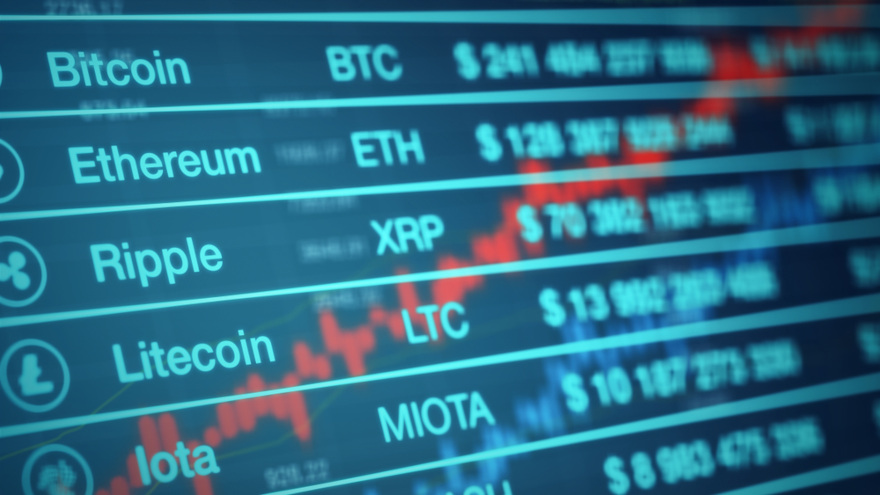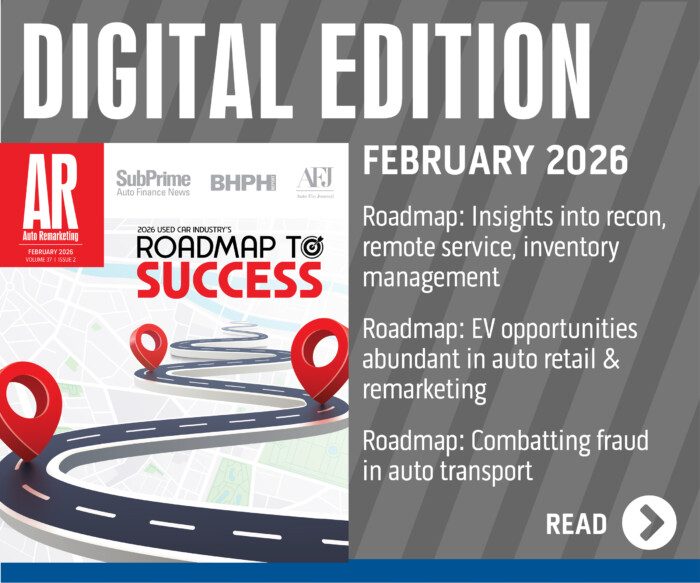COMMENTARY: How crypto helps lenders cover loan values

Image by lucadp / Shutterstock.com
By subscribing, you agree to receive communications from Auto Remarketing and our partners in accordance with our Privacy Policy. We may share your information with select partners and sponsors who may contact you about their products and services. You may unsubscribe at any time.
Auto repossessions are on the rise. Subprime repos are up 11% since 2020, according to Jalopnik. Even among prime borrowers with excellent credit scores, repossession rates have doubled from 2% to 4% in the past two years, according to Barron’s.
This trend is not surprising, considering how expensive vehicles have become. The average price for a new car is now more than $47,000 and the average used car price is over $32,000, according to Kelley Blue Book. More than 12% of customers who purchased a new vehicle in the last two years have payments of over $1,000 per month, according to Edmunds.
If the U.S. enters a recession within the next year, it’s likely that repossession rates will accelerate. Remember the subprime mortgage crisis, when millions of homeowners found themselves in a position of negative equity? Over six million homeowners lost their homes to foreclosure, many of whom chose to walk away in a strategic default.
Unfortunately, there is potential for this scenario to play out in the auto industry. For nearly two years, car buyers have been paying thousands of dollars over MSRP for new vehicles, and thousands of dollars above typical used vehicle valuations. If someone pays $15,000 over sticker for a vehicle, and within a year the value of that vehicle drops to $5,000 below MSRP, it’s going to be a long time before that person is right side up in their loan. And car loans are much easier to walk away from than home loans.
For lenders, this creates a huge problem. I spoke to one lender recently who said that although they are able to recover 98% of vehicles, the average loan value they are able to recover on those vehicles is 60%.
This could be a crisis-in-waiting for lenders with large portfolios of auto loans.
Subscribe to Auto Remarketing to stay informed and stay ahead.
By subscribing, you agree to receive communications from Auto Remarketing and our partners in accordance with our Privacy Policy. We may share your information with select partners and sponsors who may contact you about their products and services. You may unsubscribe at any time.
Crypto as collateral
One way to prevent strategic defaults on auto loans is to demand larger down payments. However, cash-strapped consumers either can’t, or won’t, put more money down. Tapping into retirement accounts is not a realistic option, as pulling out cash for an auto loan would result in early withdrawal penalties.
But what about cryptocurrency? Approximately 145 million American adults, or about 56% of the population, own some form of cryptocurrency, according to a recent Motley Fool survey; and another 46.5 million Americans say they are likely to invest in cryptocurrency for the first time in 2023.
Additionally, 80 percent of cryptocurrency owners are long-term holders, according to Glassnode. This means that a sizeable percentage of car buyers may be cash strapped, but with thousands of dollars of cryptocurrency stashed away on an exchange or in a digital wallet.
For lenders, the benefits of offering crypto-collateralized loans are two-fold. If the consumer defaults, the lender can still repossess the vehicle as they normally would. In addition, the lender can tap into some or all of the cryptocurrency that is being held as collateral, in order to cover the outstanding loan value.
If the economy continues to tighten, fewer car buyers will be able to qualify for auto loans. In particular, millennial and Gen Z consumers tend to have thin credit profiles. Another benefit to lenders is the ability to approve more loans for car shoppers who are willing to use crypto as collateral.
Lenders faced with rising default rates might want to consider tightening lending policies now. In addition, find a third-party partner who can set up and facilitate the ability to offer crypto-collateralized loans to consumers. These types of loans are a win-win-win for lenders, auto dealerships and consumers alike.
Fred Brothers is president and co-founder of Cion Digital, developers of a crypto payment and marketplace lending platform connecting consumers, merchants and lenders with new payment and loan options. Prior to co-founding Cion Digital, Brothers served as the executive vice president and chief innovation officer at FIS, a Fortune 500 provider of financial technology.


